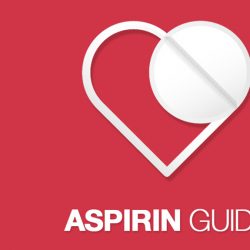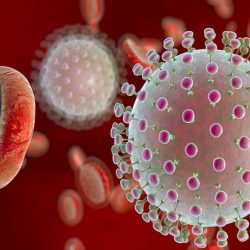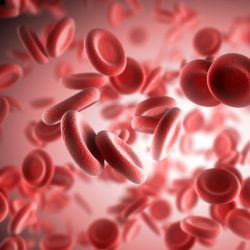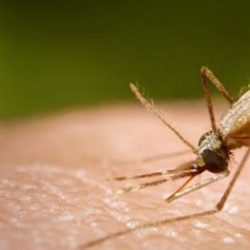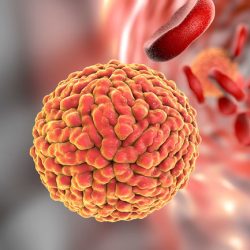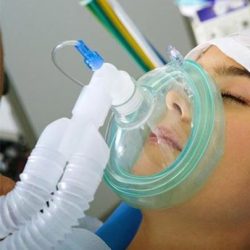Drugs used to treat diabetes could also be used to treat Alzheimer's disease, and vice versa, according to new research from the University of Aberdeen. This is also the first study of its kind to show that Alzheimer's disease can lead to diabetes, as opposed to diabetes occurring first as was previously thought. The study reports that Alzheimer's Disease and type 2 … [Read more...]
Alternative Health

Infidelity perceptions differ among men and women
New research published in Sexual & Relationship Therapy has uncovered the different ways in which men and women perceive infidelity. Infidelity can lead to relationship dissatisfaction and breakdown, though in some cases the problems may be caused by the different ways in which individuals define infidelity. The authors, based in the USA, sought to better … [Read more...]
Chronic Pain: Researchers explore epigenetic influences
Chronic pain is one of the most prevalent, disabling and expensive public health crises in the United States. It affects more than 100 million Americans, with annual costs estimated at $635 billion, says a report from the American Pain Society. Despite the enormous societal impact of chronic pain, present treatment options are limited to nonsteroidal anti-inflammatory … [Read more...]
Eliminating blood test may increase availability of donor hearts
A blood test that leads to the rejection of donor hearts may be unnecessary in predicting whether a heart transplant will succeed or fail, according to new research in Circulation: Heart Failure, an American Heart Association journal. "Heart transplantation is an incredible therapy for patients with end-stage heart failure, but there are only 2,000-2,400 transplants … [Read more...]
‘Aspirin-Guide’ app for clinicians helps personalize decisions
Low dose aspirin is recommended by clinicians as a preventive measure for patients who have already had a heart attack or stroke, but the risk of taking low-dose aspirin to prevent or delay a first heart attack or stroke is less clear, as the benefit for reducing the risk of cardiovascular disease (CVD) must be balanced with the increased risk of gastrointestinal or other … [Read more...]
Exercise four hours later to boost your memory!
A new study suggests an intriguing strategy to boost memory for what you've just learned: hit the gym four hours later. The findings reported in the Cell Press journal Current Biology show that physical exercise after learning improves memory and memory traces, but only if the workout is done in a specific time window and not immediately after learning. "It shows that … [Read more...]
High blood sugar, Lower risk of brain tumor
In a surprising twist, benign brain tumors that have previously been tied to obesity and diabetes are less likely to emerge in those with high blood sugar, new research has found. The discovery could shed light on the development of meningiomas, tumors arising from the brain and spinal cord that are usually not cancerous but that can require risky surgery and affect a … [Read more...]
Are Long-term opioids best pain management option?
In a small study looking at pain assessments in adults with sickle cell disease, researchers at Johns Hopkins says overall, those treated long-term with opioids often fared worse in measures of pain, fatigue and curtailed daily activities than those not on long-term opioids. "We need to be careful and skeptical about giving increasing doses of opioids to patients with … [Read more...]
E-cigarettes: Gateway or roadblock to cigarette smoking?
A new study from the UK Centre for Substance Use Research, being presented at the Global Forum on Nicotine, shows e-cigarettes are playing an important role in reducing the likelihood of young people smoking, in many cases acting as a 'roadblock' to combustible tobacco. In detailed qualitative interviews with young people aged 16 to 25 across Scotland and England, the … [Read more...]
Finally a way to stop Zika virus!
Scientists potentially have found a way to disrupt Zika and similar viruses from spreading in the body. A team at Washington University School of Medicine in St. Louis has identified a single gene pathway that is vital for Zika and other flaviviruses to spread infection between cells. Further, they showed that shutting down a single gene in this pathway -- in both human … [Read more...]
Cocaine Addiction affects the power to change behavior
People who are addicted to cocaine are particularly prone to developing habits that render their behaviour resistant to change, regardless of the potentially devastating consequences, suggests new research from the University of Cambridge. The findings may have important implications for the treatment of cocaine addiction as they help explain why such individuals take … [Read more...]
Blueberries’ health benefits are enumerable
Consumers know some of the benefits blueberries provide, but they're less aware of the advantages of reverting aging, improving vision and memory, a new University of Florida study shows. Shuyang Qu, a doctoral student in agricultural education and communication at the University of Florida Institute of Food and Agricultural Sciences, led the study. Joining Qu were Joy … [Read more...]
Zika’s potential threat to world blood supply deserves study and action
Blood safety researchers say it is highly likely that the mosquito-borne Zika virus can be transmitted through blood transfusions and are calling for an evidence-based approach to protecting the blood supply from the threat of Zika virus according to a commentary in the journal Transfusion. The researchers say among several possible steps that could be taken to mitigate … [Read more...]
Global switch to new polio vaccine strategy released
A groundbreaking study shows that a single injectable dose of inactivated polio vaccine (IPV) along with bivalent oral polio vaccine could protect up to 90 percent of children from polio and strengthen community protection against the disease. The research, published in the latest edition of The Lancet, provides the evidence behind the worldwide switch to a new polio vaccine … [Read more...]
Experimental antibiotic treats deadly MRSA infection: Rutgers University Study
A new experimental antibiotic developed by a team of scientists at Rutgers University successfully treats the deadly MRSA infection and restores the efficacy of a commonly prescribed antibiotic that has become ineffective against MRSA. In research published in the July issue of Antimicrobial Agents and Chemotherapy, Rutgers scientists say that the combination of their newly … [Read more...]
Personalized medicine has now come a step closer
Scientists from EPFL and ETHZ have developed a powerful tool for exploring and determining the inherent biological differences between individuals, which overcomes a major hurdle for personalized medicine. One of the biggest obstacles in successfully treating metabolic disorders such as diabetes, obesity, fatty liver etc, is the variation in the way patients respond to … [Read more...]
Platelet-Rich Plasma: Helping Patients Heal Themselves
It’s a new way to treat an age old chronic condition. Doctors are now using patients’ own bodies to heal them. You may have heard about the use of platelet-rich plasma by famous athletes, like Tiger Woods and Dwight Howard, to relieve pain in large tendons around the knee and shoulder. But now, doctors are also using the PRP procedure in much smaller areas to stop and reverse … [Read more...]
Fixing Chest Deformities
A condition that you’ve probably never heard of can wreck a child’s health and self-esteem. Pectus, or chest wall deformities, are fairly common. As many as one in 500 kids are born with pectus, which either causes the chest wall to appear sunken in or to protrude. When corrective braces don’t work, there is a surgical solution. Thirty-two year old Joseph, or “Joey,” Bond … [Read more...]
Moving can be hazardous to your health and wellbeing: An Elsevier Health Sciences Study
An extensive, long-term study of Danish children followed into adulthood shows that moving to a new home during childhood increases the likelihood of multiple adverse outcomes later in life. This unique residential mobility study of 1.4 million people tracked from their 15th birthdays until their early forties appears in the American Journal of Preventive Medicine. Data were … [Read more...]
Ebola Virus map may help prepare for future outbreaks
To be prepared for new Ebola virus disease cases, it is fundamental to start by identifying the range of the virus and the regions that are more favorable for its propagation. A team from the Center of International Forestry Research, Manchester Metropolitan University, and the Universidad de Málaga has led an unprecedented initiative to produce a new and more complete map of … [Read more...]
New compound shows promise against malaria
Malaria parasites cause hundreds of millions of infections, and kills hundreds of thousands of people annually, mostly in Africa. And in recent years the most dangerous malaria parasite, Plasmodium falciparum, has become increasingly resistant to the main anti-malarial drugs. Now, an international team of researchers shows that some members of a class of compounds called … [Read more...]
Fighting C. Diff with C. Diff
Clostridium difficile or C. diff is one of the most common hospital-acquired infections and one of the fastest growing superbugs, making it hard to fight with traditional antibiotics. Even when it’s treated, one in five patients ends up getting it again. But doctors at Loyola University School of Medicine have discovered a way to stop it from coming back and they’re using C. … [Read more...]
Scientists Reveal how our cells can ‘swallow up and quarantine’ Zika
Eight weeks after receiving their first samples of Zika virus, scientists at the University of Massachusetts Medical School (UMMS) have shown that a very small protein we all have in our bodies, interferon-induced protein 3 (IFITM3), can dramatically reduce the ability of Zika virus to infect human and mouse cells. In some cases, IFITM3 can also prevent Zika virus from killing … [Read more...]
Americans need easier access, more affordable options for hearing health care: National Academy of Sciences Study
Hearing loss is a significant public health concern, and efforts should be made to provide adults with easier access to and more affordable options for hearing health care, especially for those in underserved and vulnerable populations, says a new report from the National Academies of Sciences, Engineering, and Medicine. The committee that carried out the study and wrote the … [Read more...]
Bacteria found in female upper reproductive tract, once thought sterile
Scientists from the Gladstone Institutes have identified a new pathway by which salicylic acid--a key compound in the nonsteroidal anti-inflammatory drugs aspirin and diflunisal--stops inflammation and cancer. In a study published in eLife, the researchers found that both salicylic acid and diflunisal suppress two key proteins that help control gene expression throughout the … [Read more...]
‘Boxed Warning’ Added to Uterine Fibroid Removal Devices
The U.S. Food and Drug Administration on Monday announced that new "boxed warning" labels will be added to devices called laparoscopic power morcellators, which are used to grind up uterine fibroid growths. The warning labels follow a recommendation issued in July by an FDA advisory panel that stated there's no way to guarantee surgical morcellation wouldn't increase the … [Read more...]
ESA Study shows patients require less painkilling medication after breast-cancer surgery if they have opiate-free anesthesia
New research presented at Euroanaesthesia 2016 (London 27-30 May) shows that patients undergoing breast cancer surgery need less painkilling medication post-surgery if they have anaesthesia that is free of opioid drugs. The study is by Dr Sarah Saxena, Jules Bordet Institute, Brussels, Belgium, and colleagues. While opioid drugs provide an excellent painkilling (analgesia) … [Read more...]
Childhood fitness reduces long-term cardiovascular risks of childhood obesity: University of Georgia Study
A new study from a group of international researchers has identified a potentially effective tool to reduce the long-term health risks of childhood obesity -- aerobic exercise. In a study published in the early online edition of the International Journal of Obesity, researchers at the University of Georgia, the Menzies Institute for Medical Research in Hobart, Australia, and … [Read more...]
Human amyloid-beta acts as natural antibiotic in the brain: Alzheimer’s-associated amyloid plaques may trap microbes
A new study from Massachusetts General Hospital (MGH) investigators provides additional evidence that amyloid-beta protein -- which is deposited in the form of beta-amyloid plaques in the brains of patients with Alzheimer's disease -- is a normal part of the innate immune system, the body's first-line defense against infection. Their study published in Science Translational … [Read more...]
Social media use may help identify students at risk of alcohol problems: A North Carolina State University Study
Research from North Carolina State University and Ohio University finds that having an "alcohol identity" puts college students at greater risk of having drinking problems -- and that posting about alcohol use on social media sites is actually a stronger predictor of alcohol problems than having a drink. "This work underscores the central role that social networking sites, … [Read more...]
- « Previous Page
- 1
- 2
- 3
- 4
- 5
- 6
- …
- 25
- Next Page »




